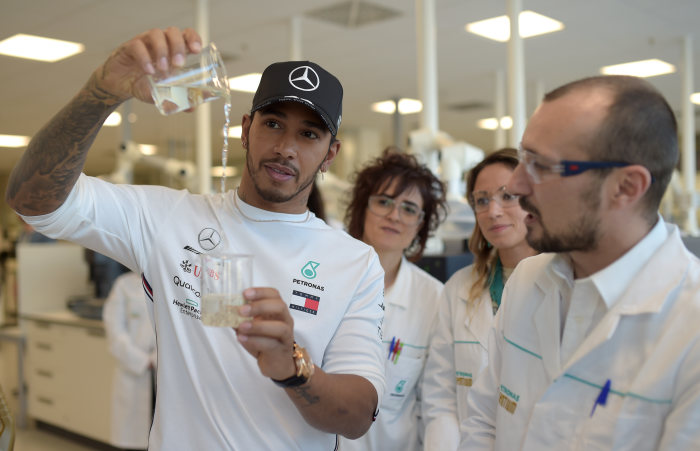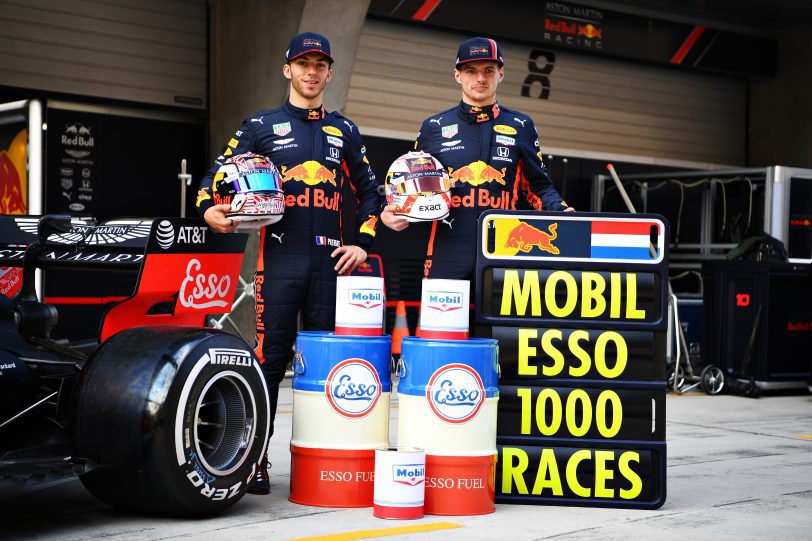What Gas Do F1 Cars Use: Ultimate Guide to F1 Fuel
F1 cars use a special fuel blend. It’s not the same as regular gasoline.
The fuel is designed for high performance. Formula 1 racing is all about speed, precision, and engineering excellence. A key part of this is the fuel used in these incredible machines. Unlike the gas you put in your car, F1 fuel is a carefully crafted mixture.
It maximizes performance while meeting strict regulations. Understanding the specifics of what gas F1 cars use helps appreciate the technology behind these racing marvels. Let’s dive into the details, exploring the unique properties of F1 fuel and how it powers some of the fastest cars on the planet.
Introduction To F1 Fuel
Fuel is very important in F1 races. It helps cars go fast. F1 cars need special fuel for their engines. Regular car fuel is not good enough. This special fuel gives F1 cars more power. Teams work hard to find the best fuel. Good fuel can help win races. It makes the car faster and more efficient.
F1 fuel has changed a lot over the years. In the past, teams used simple fuel. Now, they use high-tech fuel. Modern F1 fuel is much better. It has special ingredients. These ingredients make the car go faster. They also make the engine last longer. Teams keep improving the fuel. Better fuel means better performance on the track.
Composition Of F1 Fuel
F1 fuel is special. It is not like regular car fuel. F1 fuel has key components that make it very powerful. These components help the cars go very fast. The fuel is made from a mix of chemicals. These chemicals must follow strict rules. F1 teams use high-quality fuel for the best performance.
F1 fuel contains many important elements. These include hydrocarbons, oxygenates, and other chemicals. The hydrocarbons provide the main energy. Oxygenates help the fuel burn better. Other chemicals help improve engine performance. Each team uses a slightly different mix. This mix can change based on the race track.
F1 fuel is very different from regular fuel. Regular fuel is made for everyday cars. It is not as powerful. F1 fuel must be very pure. It cannot have impurities. Regular fuel can have small impurities. F1 fuel is also more expensive. It costs a lot to make it. Regular fuel is cheaper and easier to make.
Fuel Regulations In F1
F1 cars use specially formulated unleaded fuel similar to premium road car fuel. The fuel must comply with strict FIA regulations. These rules ensure safety and performance consistency across all teams.
Fia Standards
F1 cars use special fuel. The FIA sets the rules. The fuel must be very clean. It needs to be like road car fuel. It has to pass many tests. The tests check for quality and safety. The fuel must not harm the engine. It must be efficient and reliable. Teams can’t make their own fuel. They must follow the rules. This keeps the races fair.
Environmental Considerations
F1 cares about the environment. Fuel must be good for nature. Less pollution is very important. The FIA has rules for this. F1 cars now use more biofuels. These are better for the planet. Biofuels come from plants. They make less carbon. This helps fight climate change. The goal is to use 100% biofuels. This will make F1 more green.

Credit: f1chronicle.com
Fuel Efficiency Strategies
F1 cars use a special type of fuel similar to regular gasoline but with higher octane levels. This fuel enhances performance while maintaining engine efficiency. The composition is tightly regulated to ensure safety and fair competition.
Energy Recovery Systems
F1 cars use advanced energy recovery systems. These systems help in saving fuel. They capture energy from braking and heat. This energy is then reused to boost the car’s performance. This makes F1 cars more efficient. Energy recovery is key to saving fuel and improving speed.
Engine Design Innovations
F1 engines are designed to be very efficient. Engineers work hard to make engines lighter and stronger. This helps the car to go faster using less fuel. Turbochargers are used in F1 cars to increase power. Smaller engines can produce more power with less fuel.
Impact On Performance
F1 cars are very light. They need to be fast. Fuel weight affects speed. A full tank is heavy. It slows the car down. Less fuel means less weight. Drivers need to find a balance. Enough fuel to finish the race. But not too much. Every gram counts.
F1 cars use special fuel. It is not regular gas. This fuel is made for speed. It burns fast. It gives more power. Teams work hard to find the best mix. The right fuel mix is key. It helps the car go faster. It also makes the engine last longer.

Credit: www.youtube.com
Fuel Management During Races
Teams plan pit stops carefully. They decide when to refuel. This helps them save time. Each second counts in a race. They also check tires and make quick repairs. Timing is key. If they stop too soon, they waste fuel. If they stop too late, they might run out. So, planning is very important.
F1 cars have real-time fuel monitoring. This system shows how much fuel is left. Drivers can see this data. Engineers can also see it. They use this info to make decisions. It helps them know when to stop. This helps them avoid running out of fuel. It also helps them use fuel more wisely. This is very important in races.
Advancements In F1 Fuel Technology
F1 cars use special fuel designed for high performance. This fuel is not the same as regular car fuel. Engineers work hard to make it better. They want the cars to go faster. They also want the fuel to be safe. New fuels are always being tested. Each year, the fuel gets better.
Recent innovations focus on making fuel more efficient. This means cars can go longer distances without refueling. They also make sure the fuel burns cleaner. This helps the environment. Teams always look for ways to improve. These changes help win races.
Future fuels will be even better. Scientists are working on biofuels. These are made from plants. They are better for the earth. They also look at synthetic fuels. These are made in labs. Both are promising. They can make racing greener.
Many believe electric cars are the future. Some think F1 cars might use electric power someday. This is a big change. It will take time. But it shows how much the sport can change.

Credit: www.autosport.com
Frequently Asked Questions
What Fuel Do F1 Cars Use?
F1 cars use a specially formulated, high-octane, unleaded racing fuel. This fuel is similar to premium road fuel but optimized for performance.
Are F1 Cars Fuel-efficient?
F1 cars are not designed for fuel efficiency. They focus on maximum performance and speed, consuming fuel quickly during races.
How Much Fuel Do F1 Cars Use Per Race?
F1 cars typically use around 100 kilograms of fuel during a race. Fuel usage is regulated by FIA rules.
Do F1 Cars Use Regular Petrol?
No, F1 cars do not use regular petrol. They use high-octane racing fuel that is specially formulated for performance.
Conclusion
F1 cars use specially formulated high-octane fuel. This fuel ensures peak performance. It also maximizes engine efficiency and power. High-octane fuel is crucial for racing. It helps achieve the best speeds. F1 teams work closely with fuel suppliers. They create blends that meet strict regulations.
These blends balance power and efficiency. Understanding F1 fuel adds insight into the sport. It shows the level of precision needed. F1 races are not just about driving skills. They involve advanced technology and engineering. This makes the sport fascinating and complex.







